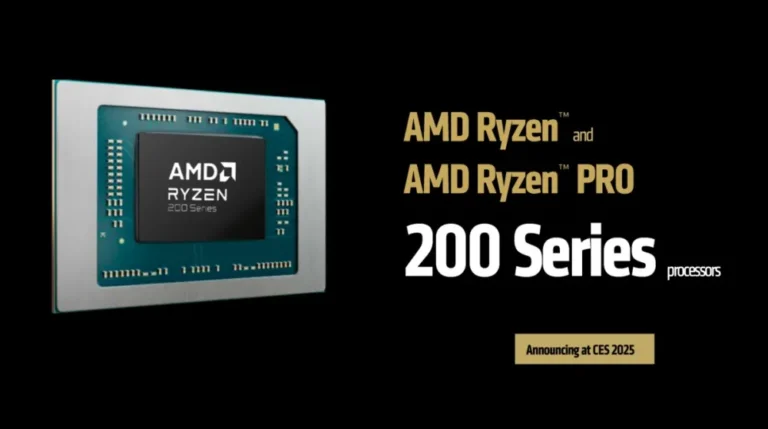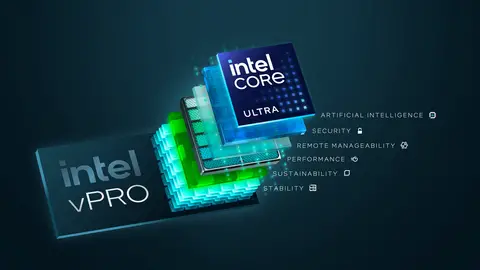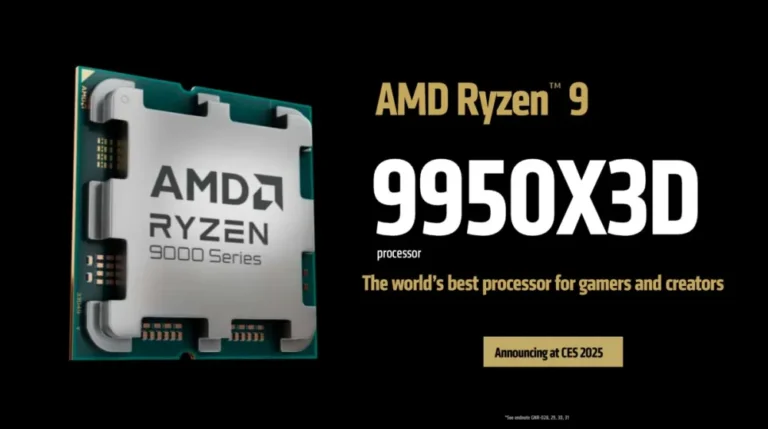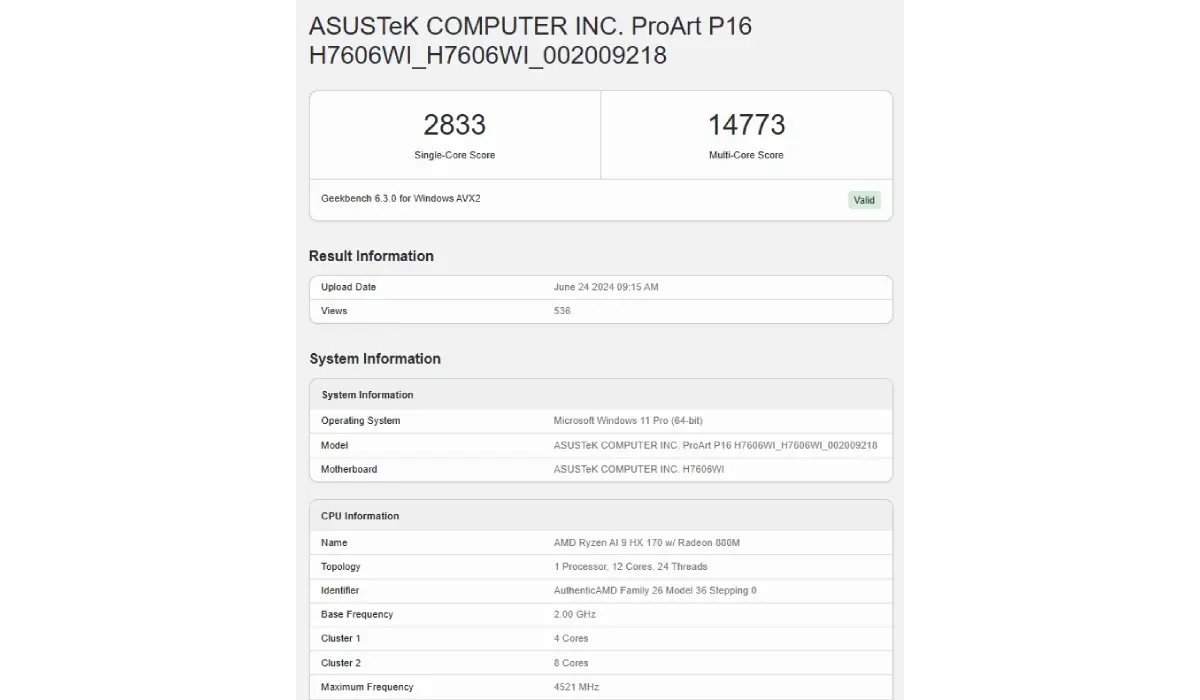
At the beginning of this month, we reported the preliminary benchmark results for the AMD Ryzen AI 9 HX 370, tested on ASUS’s new ProArt P16 laptop. Earlier this week, ASUS uploaded two more sets of benchmark results for the Ryzen AI 9 HX 370: one still from the new ProArt P16, and the other from the new Zenbook S16. In terms of performance, the Ryzen AI 9 HX 370 in the ProArt P16 matched the single-core performance of the R9 7945HX3D and showed improved multi-core performance compared to the previous results. The Zenbook S16’s performance was comparable to the R9 8945HS.
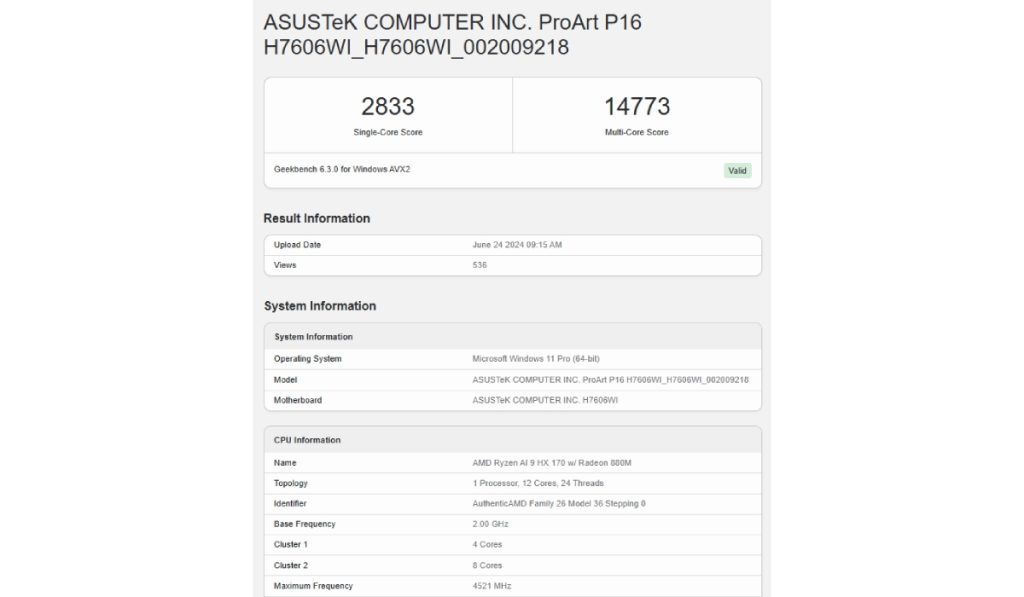
In the newly uploaded results, the ProArt P16’s single-core benchmark score showed a significant increase, rising from 2544 to 2833, surpassing the R9 7945HX3D’s 2820 score. The multi-core score also improved, increasing by 615 points from the previous 14158, although it still falls short of the R9 7945HX3D’s 16460. While ASUS did not specify the power policy used during testing, the new scores were achieved at a boost frequency of 4.52GHz (4521MHz), suggesting that the laptop was likely tested in a performance mode.
Regarding the Zenbook S16, more detailed information is available. The test platform had a boost frequency of 3.7GHz (3705MHz) and was equipped with 32GB of quad-channel DDR5 memory, tested under a balanced power policy. In this state, the Ryzen AI 9 HX 370 in the Zenbook S16 achieved a single-core score of 2558 and a multi-core score of 13613, closely matching the R9 8945HS in the ROG Zephyrus G14 Air, which scored 2553 in single-core and 12989 in multi-core performance under performance mode.
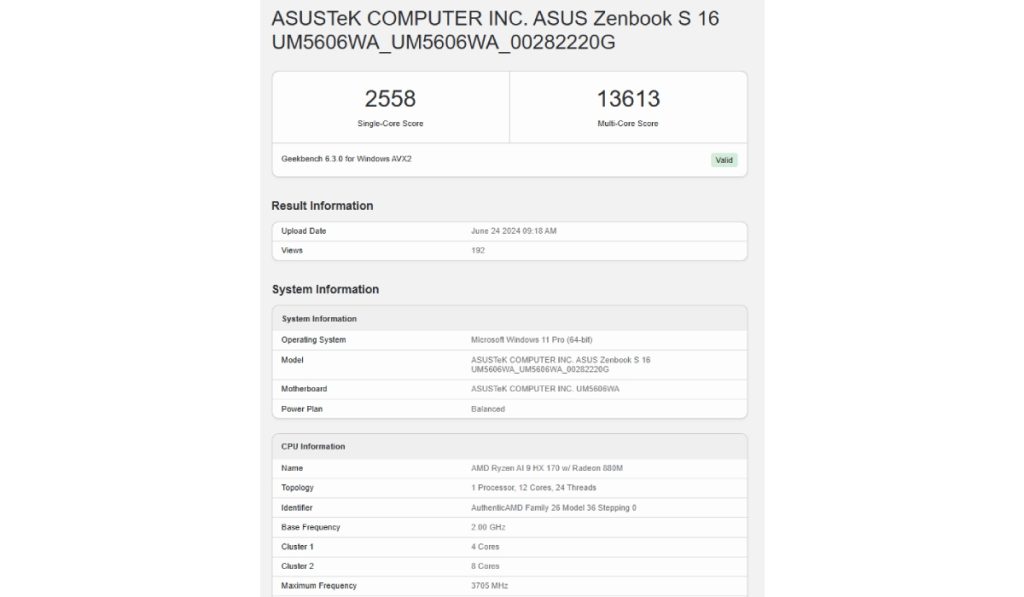
AMD officially launched the Ryzen AI 300 series processors at Computex 2024. The Ryzen AI 9 HX 370 features 4 Zen 5 cores and 8 Zen 5c cores, totaling 12 cores and 24 threads, with a base clock speed of 2.0GHz and a maximum boost clock speed of 5.1GHz. It also includes an RDNA 3.5 architecture GPU with 16 compute units, and an XDNA 2 neural processing unit capable of delivering 50 TOPS of performance.
